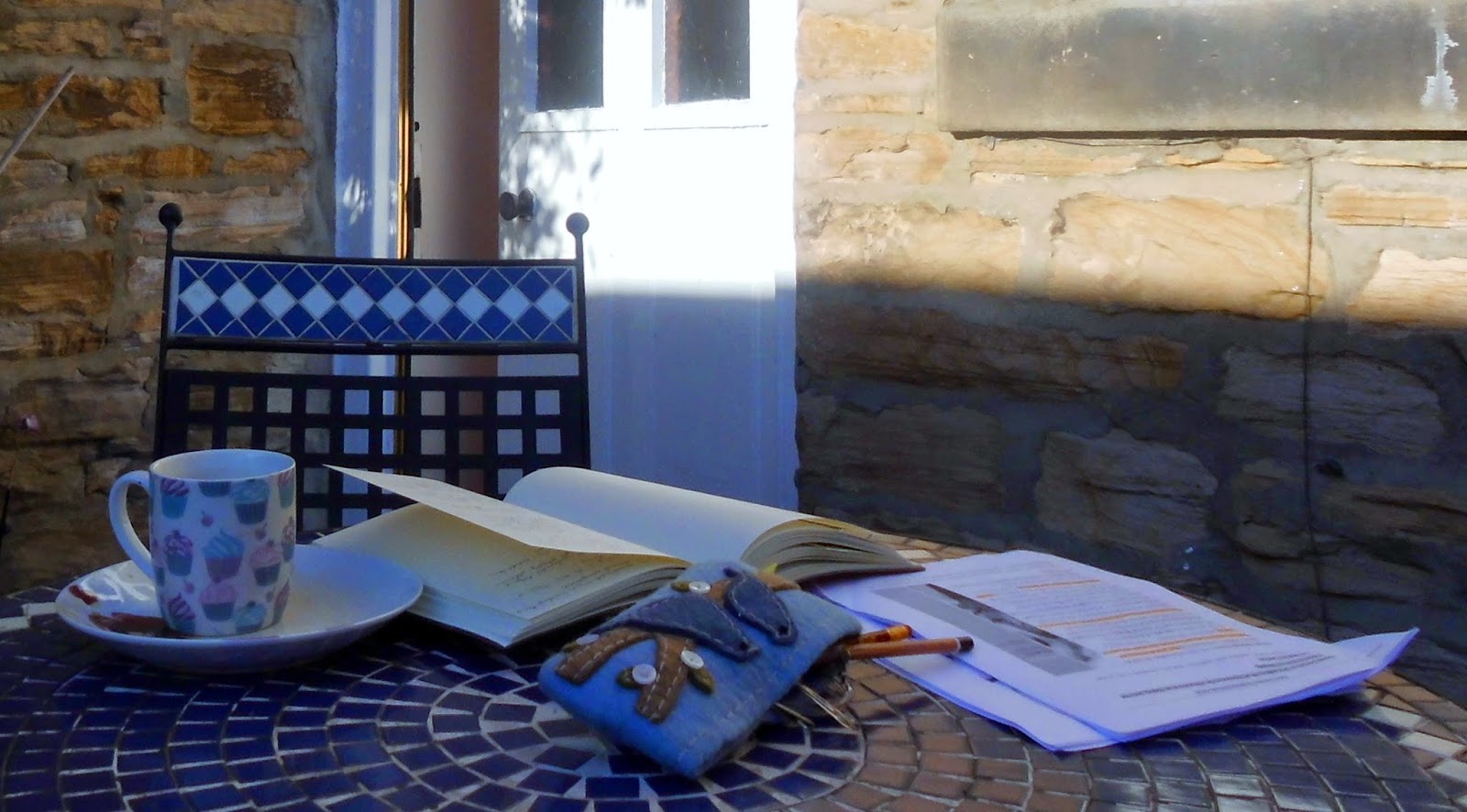My Easter week-end was made joyful by sitting in my sunny back yard reading a long article by Maria Popova about the writings of Susan Sontag. In this article Popova distils for us the essence of Sontag’s wisdom about the inner world of the serious writer and the outer world of the interested reader.
I suppose this holiday activity of mine makes me look what I
am – a rather serious
person. I was serious as a child, serious as a teenager, a serious young and middle aged writer. And I continue to be serious.
person. I was serious as a child, serious as a teenager, a serious young and middle aged writer. And I continue to be serious.
This seriousness can be a guilty secret, to be disguised at
any age. My love for ideas and cultural history was not cool in my youth; it
was not cool in my middle years. But now
as I get older I have at last come out as ‘serious’ and am not dismayed when
some people label my love for ideas,
culture and history as eccentric. This is very useful nowadays when being\serious and committed
writer who values the stories over profit can makes one seem odd to some people.
In the contemporary world a peculiarly evolving literary
snobbery has carved our story-world into a blunt-edged hierarchy which has
spawned iron-clad genres to feed a market which takes an essentially
patronising view of readers, underestimating the breadth of their world view
and the subtlety of their understanding.
As I keep saying, I am a serious
writer. I take the world around me seriously. I take my readers seriously - not
least because through the years they have been loyal and have understood that
my narrative fiction and my story-telling, while it contains its own joy and
humour, has cultural meaning beyond the hearth, the house, the street, the
town, the city and out into to the world beyond.
So, when the location of my storytelling has moved out from
my home region to as far afield at France ,
America , Singapore and Germany
So, you will see how much, being a serious storyteller, I
relished my afternoon in the sun in the company of Maria Popover and Susan
Sontag.
First I was pleased to read that Susan Sontag warns us writers
to be serious, and never to be cynical.
Although I make no claims to be a great writer, I hope I am a
good writer. So I warm to and identify with Sontag’s description of a great
writer. ‘A great writer of fiction both
creates – through the acts of the imagination, through language that feels
inevitable, through vivid forms – a new world that is unique, individual and
responds to the world but is unknown to still more people [and shares it with]
still more people, locked in their worlds: call that history or society or what
you will.’
I love the way Sontag elevates story-telling to its proper
high place in all cultures, asserting
that storytelling is literature’s great duty. ‘Storytelling, as well as being engaging and entertaining, transforms
information into wisdom.’ The primary task of writing, she says, is to go on writing well – ‘neither burn out nor
sell out.’
She is concerned that …
everybody in our debauched culture invites us to simplify reality, to despise
wisdom.
To write – and to read – is to know something. What a pleasure it is, she says, to read a writer who
knows a great deal (not a common experience these days). A great writer of fiction, she says, by writing truthfully about the society in which she or he lives,
cannot but evoke better standards of justice and truthfulness.
So I have no need to apologise for knowing a lot about a lot.
Storytelling, as practiced by a novelist, has an ethical component. ‘Serious
fiction writers think about moral problems in practical terms. They narrate,
they stimulate the imagination. The stories they tell enlarge and complicate –
and therefore improve – our sympathies. They educate our capacity for moral
judgement.’
The act of reading is a close, intense and rewarding
experience. The nature of moral judgement essentially depends on the capacity
for paying attention on the part of both the writer and the reader.
She goes on: ‘A
novelist […] is someone who takes us on a journey through space and time.’
I like this. I myself recently wrote in my newsletter The Writing Process that the writer is the pathfinder through the
inspirations, information, events, characterisations and prose that form the
bulk of a first major draft.
Quite coincidentally The
Pathfinder is the title of my next novel, which will be out towards the end
of the year.



No comments:
Post a Comment